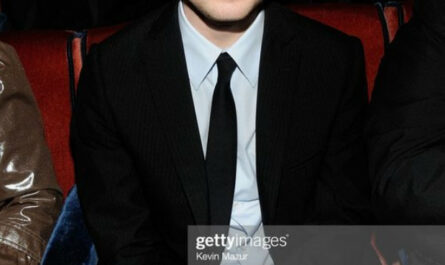Adam Sandler’s portrayal of Happy Gilmore in the eponymous 1996 comedy film is often hailed as one of his most iconic performances. Yet, behind the scenes, Sandler faced a myriad of challenges and obstacles in bringing the character to life on the big screen. From navigating the complexities of comedic timing to overcoming skepticism from critics and audiences alike, Sandler’s journey to breaking par as Happy Gilmore was far from easy. In this in-depth exploration, we delve into the unspoken obstacles Sandler faced in playing Happy Gilmore, examining both the revolutionary impact of his comedy and the criticisms leveled against it.
The Revolution:
Sandler’s supporters argue that he revolutionized comedy by:
Embracing Immaturity: At a time when mainstream comedy was dominated by more sophisticated and observational humor, Sandler dared to embrace immaturity with gusto. His brand of comedy, characterized by silly gags, fart jokes, and man-child antics, struck a chord with a generation raised on MTV and a desire for irreverent humor that didn’t take itself too seriously. By unabashedly embracing immaturity, Sandler challenged the status quo and paved the way for a new wave of comedy that celebrated the absurd and the outrageous.
Casting Friends as Family: Sandler’s films often feature the same ensemble cast of comedic actors, many of whom are his close friends and former Saturday Night Live (SNL) colleagues. This sense of familiarity and camaraderie creates a unique dynamic on screen, as audiences feel like they’re watching a group of friends having fun together. By casting his friends as family, Sandler creates a sense of authenticity and comfort that resonates with audiences and fosters a sense of loyalty to his brand of comedy.
Box Office Success: Despite the criticisms leveled against him, there’s no denying that Sandler’s films have been consistently successful at the box office. From “Billy Madison” to “Happy Gilmore” to “Grown Ups,” Sandler’s movies have consistently drawn audiences in droves, raking in millions of dollars in ticket sales. This commercial success not only solidifies Sandler’s status as a bankable star in Hollywood but also gives him the leverage to continue making the kind of movies he wants, unfettered by studio interference or outside pressures.
The Rebuttal:
However, Sandler’s critics argue that his humor is:
One-Note: One of the most common criticisms leveled against Sandler is that his comedy is one-note, relying too heavily on the same jokes and characters throughout his career. From the lovable man-child to the bumbling everyman to the over-the-top caricature, Sandler’s characters often feel like variations on a theme, lacking the depth and nuance of more multifaceted comedic performances.
Lowbrow: Some critics find Sandler’s humor to be juvenile and vulgar, pandering to the lowest common denominator with crude jokes and slapstick humor. While there’s certainly a place for lowbrow comedy in the entertainment landscape, Sandler’s critics argue that he often crosses the line into crassness and insensitivity, alienating more discerning viewers in the process.
Critical Duds: Despite his commercial success, Sandler’s films have consistently received negative reviews from critics. Whether it’s the lackluster writing, the recycled jokes, or the uninspired performances, Sandler’s movies have frequently failed to impress reviewers, earning him a reputation as a purveyor of cinematic mediocrity rather than comedic brilliance.
Conclusion:
In conclusion, Adam Sandler’s portrayal of Happy Gilmore in the eponymous 1996 comedy film is a testament to his comedic talent and enduring appeal. Despite the obstacles he faced in bringing the character to life, from navigating the complexities of comedic timing to overcoming skepticism from critics and audiences alike, Sandler’s performance as the lovable hockey player turned golfer remains a beloved classic of the genre. Whether one views Sandler as a revolutionary force in comedy or a purveyor of lowbrow humor ultimately comes down to personal preference. But there’s no denying the lasting impact of Happy Gilmore and the enduring legacy of Adam Sandler as one of Hollywood’s most iconic comedic actors.



